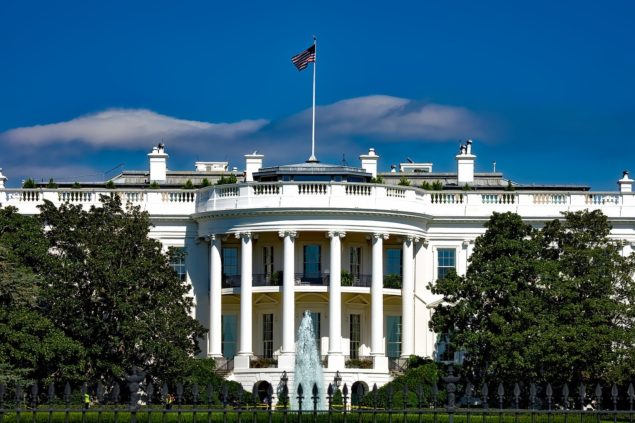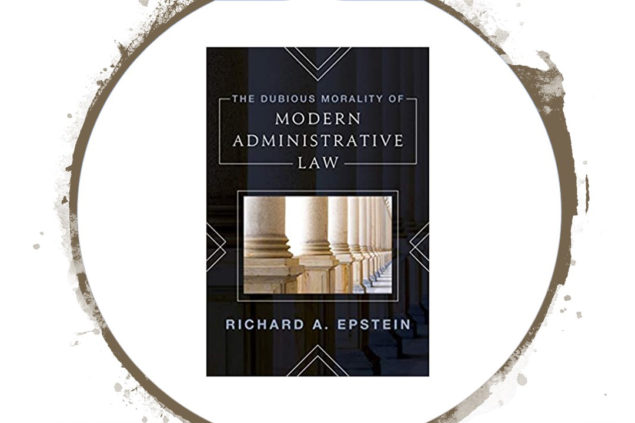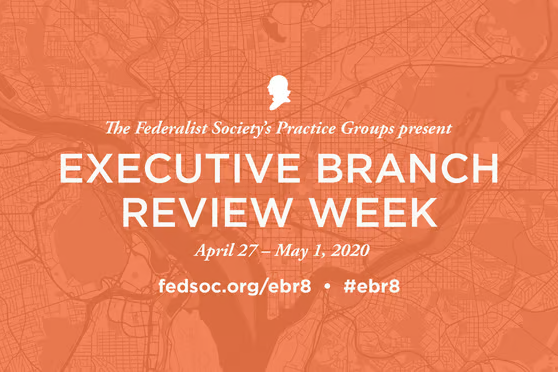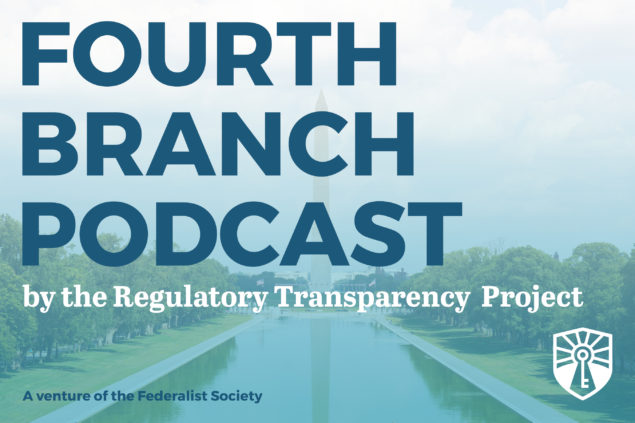Adam J. White
Assistant Professor and Executive Director, The C. Boyden Gray Center for the Study of the Administrative State
Antonin Scalia Law School

Adam J. White
Assistant Professor and Executive Director, The C. Boyden Gray Center for the Study of the Administrative State
Antonin Scalia Law School
Adam White is an assistant professor of law and the executive director of the C. Boyden Gray Center for the Study of the Administrative State at the Antonin Scalia Law School at George Mason University. Concurrently, he is a resident scholar at the American Enterprise Institute, where he focuses on American constitutionalism, the Supreme Court, and the administrative state.
Mr. White previously practiced constitutional and administrative law, particularly in the regulation of energy and the environment, finance, and telecommunications. He was a research fellow for Stanford University’s Hoover Institution and an adjunct fellow for the Manhattan Institute. He started his legal career as a law clerk for Judge David B. Sentelle at the US Court of Appeals for the DC Circuit.
The author of a wide range of essays, book reviews, law review articles, and book chapters, Mr. White has appeared in publications such as The Wall Street Journal, National Affairs, Commentary, The Harvard Journal of Law & Public Policy, and the Notre Dame Law Review. He is a regular contributor to the Yale Journal on Regulation’s “Notice and Comment” blog, and for many years he was one of The Weekly Standard’s primary writers on constitutional law and the Supreme Court.
Mr. White has testified before a variety of US House and US Senate committees, including the Senate Judiciary Committee; the House Judiciary Subcommittee on Regulatory Reform, Commercial, and Antitrust Law (currently known as the Subcommittee on Antitrust, Commercial, and Administrative Law); the Senate Commerce Committee; and the House Financial Services Subcommittee on Oversight and Investigations.
In 2017 he was appointed to serve on the Administrative Conference of the United States. He also serves on the boards of two nonprofit organizations: Speech First and the Land Conservation Assistance Network.
He has a JD from Harvard Law School and a bachelor of business administration from the College of Business at the University of Iowa.

A person listed as a contributor has spoken or otherwise participated in Regulatory Transparency Project events, publications, or multimedia presentations. A person's appearance on the website does not imply an endorsement or relationship between the person and the Regulatory Transparency Project. The Regulatory Transparency Project takes no position on particular legal or public policy issues. All expressions of opinion by a contributor are those of the contributor.
Contributions
Deep Dive Episode 126 – Minutes to Midnight, or Teeing Up a Second Term?
To what extent can the current administration issue “midnight rules” affecting policy beyond January 20? And to what extent could the Congressional Review Act permanently erase those rules?
Listen to this podcastDeep Dive Episode 121 – Book Review: The Dubious Morality of Modern Administrative Law
In this live podcast, Prof. Adam J. White interviews Prof. Richard Epstein about his new book, and then Prof. Epstein fields caller questions on administrative law.
Listen to this podcastDeep Dive Episode 113 – Executive Orders on Guidance: Implications and Next Steps
In this episode, experts discuss a 2019 executive order that imposed a series of restrictions and requirements on Federal agencies, and even included a requirement that agencies publish their guidance on the internet.
Listen to this podcastDeep Dive Episode 111 – The Truth About the EPA’s Science Transparency Rule
Richard Belzer, Daren Bakst, and Adam White discuss a proposed rule that would require the EPA to make public important information underlying both significant regulatory actions and influential scientific information disseminated by the Agency.
Listen to this podcastDeep Dive Episode 55 – Regulatory Reform Report Card: Agency General Counsel Perspective
In this episode, General Counsels from a number of federal agencies take stock of the current administration’s regulatory reform agenda two years on.
Listen to this podcast2018 JLEP Symposium: Creative Regulators and Environmental Protection
Government regulation is intended to improve the efficiency of markets and protect people from harms they cannot identify or prevent on their own. But, for decades, advocates have debated whether the regulatory process and rules developed through it are too strict or too lax; whether they properly account for all the things society values; and even whether they make society better or worse off on balance. The Journal of Law, Economics & Policy’s Symposium on Regulatory Reform, Transparency, and the Economy explored these and related questions as leading scholars and practitioners examined a number of recent regulatory proposals impacting a broad swath of the American economy – from banking and finance to energy and the environment, and from employment law to the internet economy. Speakers considered and debated how well these proposals would perform their intended functions and how they might be improved.
The symposium featured discussions of research papers prepared by experts working on the Federalist Society’s Regulatory Transparency Project. The proceedings of the Conference were published in a special symposium issue of George Mason’s Journal of Law, Economics & Policy.
Watch this video





